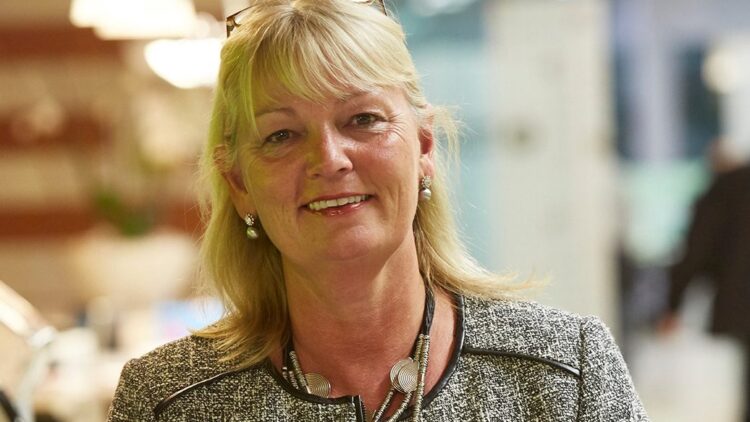
Have you ever wondered what caterers do on a rainy Friday? Well, last Friday we all met, courtesy of our trade magazine, to talk about the future including Brexit, which is something that definitely interests and effects us all. I learned some useful information which I wanted to share.
Brexit’s economic impact on hospitality
An RBS economist shared his economic thoughts. His key point was the impact of Brexit and how this has caused the headwinds to pick up, and he thinks it’s going to be a tough 18 months. The RBS economist told us that in a survey of economists, they have revised their 2.5 % GDP growth down to 1.7% for this year. Next year is forecast to be about .06%, which takes us nearly to recession levels and will certainly be a weaker backdrop to do business in. However, there is good news, it’s not going to be as bad as 2008/9, so that’s a bit of a bright side.
The purchasing index is a good indicator of the future and this has also shown a downturn, but again not as bad as 2008/09, so this time it may signal stagnant growth.
The food and beverage sector is in better shape showing 2 – 3% solid growth but competition is tough and margins tight and there’s a lot of rebranding at the moment to gain competitive advantage. The power to pass price increases onto the consumer is also constrained, so food and labour cost increases need to be covered by the company which creates reduced margins.
The areas to concern caterers are;
- The fall in the value of the £ (about 10%) since the referendum means rising food costs, but on a good note it does attract more tourists to the UK.
- A shortage of skilled people. Labour is an ongoing concern with self-employed numbers increasing, the number of hours averagely worked per week coming down, and an ageing population (since the ’60’s there has been a falling birth rate). There are not as many young people coming into the market and recruitment is getting tougher.
Conclusions
- Slower growth than anticipated (pre-Brexit), close to recession (but not as bad as 08/09). GDP forecast 1.7% in 2016 and 0.6% in 2017
- Higher near-term inflation – 0.6% 2016 but in 2017 inflation is expected to peak around 2.7%
- Looser economic policy setting
- Squeeze on disposable income forecast in 2017 about 2%, lowest since last recession
- Sterling going to remain weak, putting pressure on imported food and therefore hitting food costs
- Political threat to economy remains high with elections in UK, USA, Germany and France.
So as the service sector is reliant on consumer spending, the danger is that there is an oversupply. In the service sector, hospitality has grown disproportionately to say financial services.
The importance of self-belief
The second speaker was Chris Penn who spoke about his experience of swimming the English Channel, entitled ‘Believing in yourself’.
Chris actually swam 42 miles, even though it’s only a 21-mile journey. What an inspiration. He shared some interesting facts:
- Jelly fish were the biggest challenge.
- No one is allowed to swim the other way from France to Great Britain.
- He is one of only 1,700 people that have swum the channel
- You need to swim in your speedos not a wet suit
We learnt that to swim the Channel requires:
- Mental strength
- Preparation
- Physical strength
and above all…
- You have to believe in yourself
Skills challenge ahead
A representative from Springboard talked about the skills challenge the hospitality industry faces and for chefs in particular. At any one time it is believed there are 20,000 to 25,000 chefs vacancies to fill.
The economist had also highlighted the chronic skills shortage and this is why the government has registered chef roles as one of our chronic skill shortages. Why? Because the food revolution has come but not enough people support it and want to work in it.
To attract people from this limited pool, hospitality faces competition from other industries who are also facing chronic skill shortages including teachers, doctors, engineers, retail and construction.
A quarter of our workforce are from outside the UK, of which, 45% are from EU and 55% come from outside the EU. From 2017 workers from outside the EU, (estimated to be 600,000) will have to pay £1,000 to work in GB, this may deter migrants and reduce the pool of people available to work in hospitality.
Will we be able to fill our catering positions with home grown people? Sadly, in a survey of parents, 82% said they would actively discourage young people joining hospitality. 54% of the school leavers however said they would consider hospitality but that’s still not enough people. There is a desperate need to change the perception of the industry otherwise getting your latte or lunch served may become a luxury.
Why is this important and why is there not enough people? Reiterating an earlier point, the drop in birth-rate since the 60s means we have less young people and we live longer so therefore we are an ageing population. One positive change is that by law all schools now have to have offer more career options, representing all industries and career paths and not just focusing on university.
Unique culture
To complete the day, we had an inspiring talk by Karen Forrester who took over as CEO of TGIF in 2007. What a difference she has made to the business. I can vouch for that based on my own experience. It was a dying brand – but not now, her energy is unbelievable!
What Karen has done is inspiring and reinvigorating. She developed the mantra ‘’In here, it’s always Friday’’. This feeling she acknowledged, can only delivered by TGIF, because it is the only place that can make this claim. Every team member is a ‘trailblazer’ and it is they that have defined the culture – all 5,450 of them!
With 40,000 visits to their web page and 5,000 people applying for jobs every month, how do TGIF get the right people? Karen said, “It’s all about attitude not skill”. Once team members join TGIF they are trained and retrained, and they have annual ‘right team’ exercises to make sure the right people with the right attitude are on board. Karen says it’s 80% evaluation, 20% academic – that’s the measurement and you don’t join the TGIF organisation, you join the family.
I particularly loved that every site has its own mantra, its own pin and its own war cry!
As Karen says ‘plan the action and action the plan’ because ‘what gets said, gets done’.
So all in all a very useful way to spend a rainy Friday morning
Share on:
My earliest food memories are of my mum’s baking; coconut pyramid cakes were my favourite.
More from Wendy Bartlett